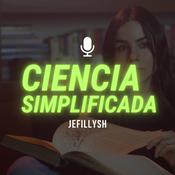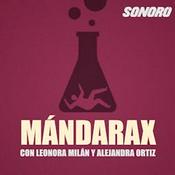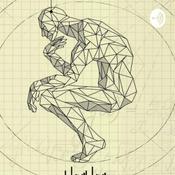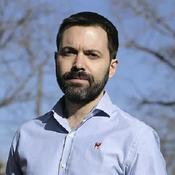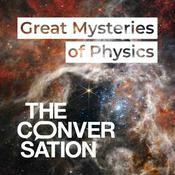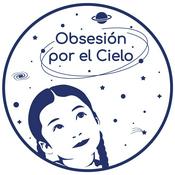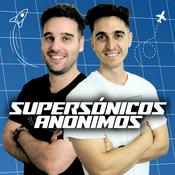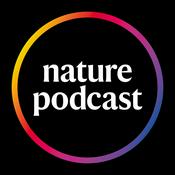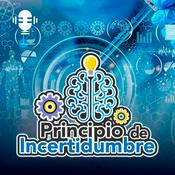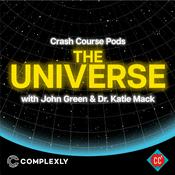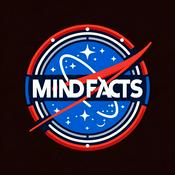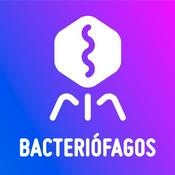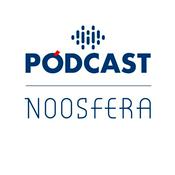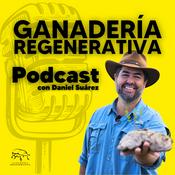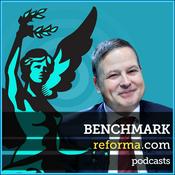21 episodios

S2E9: Invertebrates, museums, windsurfing and more with Dr. Gonzalo Giribet
18/2/2022 | 44 min
In this episode, we’re hearing from Dr. Gonzalo Giribet, who is a Professor of Organismic and Evolutionary Biology and the Curator of Invertebrates and Director of the Museum of Comparative Zoology. Gonzalo received his bachelor’s degree and his PhD from the University of Barcelona, then did his postdoc at the American Museum of Natural History in New York. While there, his postdoc advisor convinced him to apply for a faculty position at Harvard, which he got, and he has been at Harvard ever since. Gonzalo was an early adopter of the idea of molecular phylogenetics, which he has used to help clarify our understanding of the invertebrate tree of life. In this episode, we chat about: What a postdoc at a museum is like and the types of research you can do at a museum What a science museum curator does (and doesn’t do) Underrated invertebrates, including velvet worms How studying rare animals has enabled Gonzalo to travel the world Gonzalo’s vision for the future of Harvard’s Museum of Comparative Zoology Some of the pros and cons of studying non-model organisms The value of being disciplined with how you use your time Finding a project you’re really passionate about Windsurfing! Get in touch with Steph: Twitter Get in touch with the podcast: Twitter Facebook Instagram Email: [email protected] Website: rootstostempodcast.com

S2E8: Dr. Paula Welander on geobiology, archaea, and how to come up with good questions
04/2/2022 | 44 min
In today’s episode we’re talking to Dr. Paula Welander, an Associate Professor in the Earth Systems Science Department at Stanford University. Although she is now a tenured professor at Stanford, this certainly wasn’t the plan from the start. Paula’s parents immigrated from Mexico in the hopes of giving their family a better life, and they really encouraged her to go to college and to pursue one of two careers, medicine or law. So Paula went to Occidental College with medicine in mind, however that path shifted when she worked in a microbiology lab and realized that research like that could actually be a career. Paula has been working with microbes more or less ever since (although with a short hiatus that we talk about in the episode). After getting her undergrad at Occidental College, Paula worked for a few years (this is where the non-microbial work comes in) and then got her PhD in microbiology at the University of Illinois at Urbana-Champaign with Bill Metcalf. She then did a postdoc at MIT, where she was co-advised by Dianne Newman (who later moved to CalTech) and Roger Summons. After going through three cycles of faculty applications during her postdoc, Paula got her current position at Stanford Earth, where she studies geologically relevant microbes. Some of the things we cover in this episode: How can you use molecular biology and microbiology to understand geology and the earth’s history? What are archaea? The two body problem (aka having a partner who is also an academic) Having kids in grad school Some pros and cons of taking time off after undergrad How to come up with good questions Practicing for faculty interviews The best and worst parts of Paula’s PhD The excitement of adding new knowledge to the world Get in touch with Paula: Twitter Welander Lab Website email: [email protected] Get in touch with Steph: Twitter Get in touch with the podcast: Twitter Facebook Instagram Email: [email protected] Website: rootstostempodcast.podbean.com

S2E7: The value of PhD soft skills with Dr. Rebecca Shaw, Chief Scientist at the World Wildlife Fund
21/1/2022 | 51 min
In this week’s episode, we’re hearing from Dr. Rebecca Shaw, the Chief Scientist at the World Wildlife Fund. Rebecca received her MA in environmental policy and her PhD in energy and resources from UC Berkeley. After finishing her PhD, Rebecca did a postdoc at the Carnegie Institution for Science at Stanford, and then worked at the Nature Conservancy and the Environmental Defense Fund before moving to her current role at WWF. Some of the things we talk about in this episode include: Rebecca’s decision to turn down a faculty position and instead pursue a career that enabled her to combine her interests in climate change science and non-profit work How PhD training equips you to be successful at all sorts of other careers What gives Rebecca hope when it comes to climate change (including the wonderful poem Earthrise by Amanda Gorman) Rebecca’s advice for women in science Why staying positive has been a key part of what has made Rebecca successful, and how she takes care of herself to be able to stay positive The importance of constantly improving both your hard skills and your soft skills Get in touch with Rebecca: LinkedIn Twitter Get in touch with Steph: Twitter Get in touch with the podcast: Twitter Facebook Instagram Email: [email protected] Website: rootstostempodcast.podbean.com

Bonus: STEM Grad School Interview Tips & Advice
14/1/2022 | 29 min
In this bonus episode, Steph shares some tips for grad school interviews. This episode is broken down into advice for before, during, and after the interviews. Here are some additional resources that were mentioned in the show: Template for thank you note to faculty: Hi Dr. (NAME), It was so great to meet you on Friday. Thanks for taking the time to talk with me and discuss your research and what life in (LOCATION) is like. I think being able to work with yourself and Dr. (NAME) would be a really great way to explore all of my research interests and I'm excited about the prospect of exploring (RESEARCH INTERESTS). I had a great time at my visit and I could definitely see myself at (SCHOOL). Please let me know if you need anything else from me moving forward, otherwise, thanks again! Template for email to faculty when you’re turning down admission: Hi Dr. (NAME), Thank you so much for your consideration and for this extremely generous offer of admission. However, I'm writing to let you know that I have decided to pursue my graduate education at (SCHOOL) and therefore, unfortunately I will not be attending (SCHOOL) This was certainly a very difficult decision for me, but I wanted to let you know as soon as possible so that you can make decisions regarding other applicants. Other resources: Advice from Letters to Young Scientists LTYS Grad School Interview Questions Extended List Interviewing Tips & Advice for STEM Graduate Programs from Cientifico Latino Get in touch with Steph: Twitter Get in touch with the podcast: Twitter Facebook Instagram Email: [email protected] Website: rootstostempodcast.com

S2E6: The silver lining of ”no” with PhD student Nixon Arauz
07/1/2022 | 47 min
In this episode, we’re talking with Nixon Arauz, who is a PhD Student in Social and Behavioral Sciences at the Virginia Commonwealth University School of Medicine. Nixon’s personal experiences have shown him how important things like housing, education, and local politics are for health and wellbeing and has prompted him to become a passionate advocate for improving social determinants of health through his research. Nixon got his bachelor’s degree from Cornell, and a Master’s degree from Columbia. After this he worked at the Office of Health Equity within the Division of STD Prevention at the Center for Disease Control and Prevention. While working there, Nixon realized he wanted to hone his technical skills, and so returned to school to get his PhD, where he is now researching HPV-related cancers and beliefs about the HPV vaccines in Hispanic/Latino populations in the US. Some of the topics we discuss in this episode include: The nitty-gritty of what a PhD in health policy looks like Nixon's approach to community-engaged research How relationships can help foster community resilience ORISE Fellowship The National Academies of Science Mirzayan Fellowship The value of being able to unlearn things How to find the silver linings of being told no Get in touch with Nixon: Twitter Get in touch with Steph: Twitter Get in touch with the podcast: Twitter Facebook Instagram Email: [email protected] Website: rootstostempodcast.com
Más podcasts de Ciencias
Podcasts a la moda de Ciencias
Acerca de Roots to STEM Podcast
Escucha Roots to STEM Podcast, Jefillysh: Ciencia Simplificada y muchos más podcasts de todo el mundo con la aplicación de radio.net
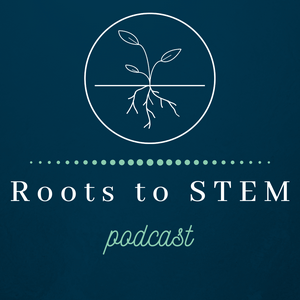
Descarga la app gratuita: radio.net
- Añadir radios y podcasts a favoritos
- Transmisión por Wi-Fi y Bluetooth
- Carplay & Android Auto compatible
- Muchas otras funciones de la app
Descarga la app gratuita: radio.net
- Añadir radios y podcasts a favoritos
- Transmisión por Wi-Fi y Bluetooth
- Carplay & Android Auto compatible
- Muchas otras funciones de la app


Roots to STEM Podcast
Descarga la app,
Escucha.
